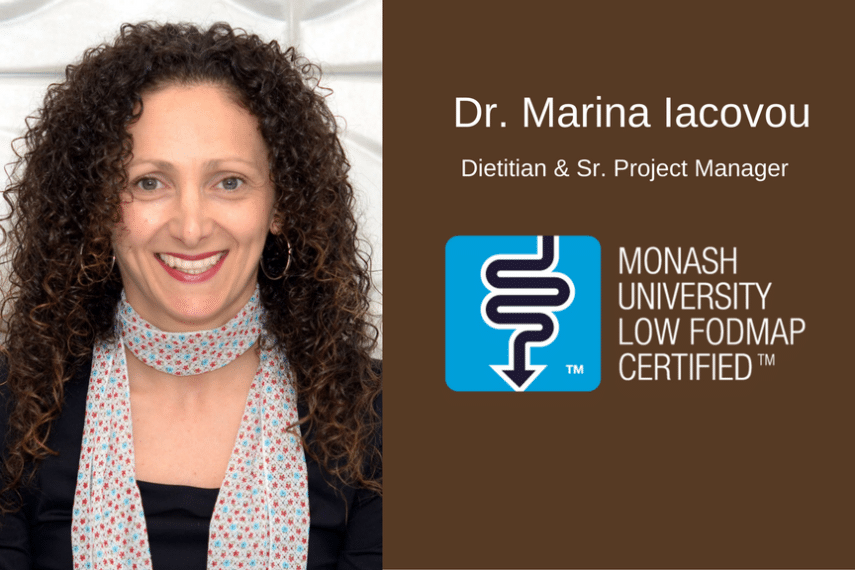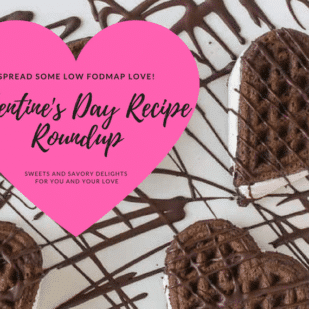Published January 18, 2018
What is The New Monash University Recipe Certification Program?
Monash University is ground zero for the low FODMAP diet. Researchers from the University developed the diet, they continue to be at the forefront of research and their certification programs are helping consumers navigate the low FODMAP universe more easily.
Their product certification launched in February 2014. Currently, they have over 100 products, in the U.S. and abroad, that have been certified by them to be low FODMAP and therefore easily integrated into the diet.
This is a very direct way to help consumers eat healthily and make decisions at the supermarket that will help them cook fabulous low FODMAP food. The entire line of FODY Foods. for instance, is Certified Low FODMAP by Monash University.
The Monash University Recipe Certification is brand new and FODMAP Everyday is the first North American brand to have taken recipes through the program and the first (and only, as of now) to offer Monash certified recipes free to the user.
You can read a little about it here, but we recently had the opportunity to interview Dr. Marina Iacovou about the intent of and their plans for the Recipe Certification program.
Dédé Wilson: Marina, thank you so much for taking the time to talk to us about this. Tell us how the University decided to launch a Recipe Certification Program? What was it that suggested that such a program would be useful?
This is something that has evolved over many years and input from a whole team of people. In many respects, the products, services and resources we offer have been driven by patient/consumer demand. As many are already aware, the team at Monash have been developing recipes for years – long before the launch of our certification program.
It all began when we started developing recipes and cooking meals for all our dietary studies to feed research participants. Something we still do until this day. Because these recipes were proven to be tolerated through our research, we then decided to list some on our app, which launched in 2012. This was simply aimed at providing patients and health professionals with support on how to prepare and cook meals that were low in FODMAPs. Then we moved to posting new recipes that had either been part of our research or tested by our team via our blog and social media.
The recipes we shared with followers has always and still attracts a lot of interest. This led to researchers and recipe developers outside of Monash asking us to analyze their recipes. As the interest grew this eventually prompted people to ask if we would endorse their recipe books, blog posts and more. However, the only way we could do this was by formerly expanding our certification program for products to include recipes.
One of the very first clients to approach us with this idea was in fact yourselves, FODMAP Everyday®. So it is not surprising to us at Monash that you are the first North American brand to join the program for recipes.
Who are you marketing the recipe certification to and who are the intended end-users who will benefit?
The recipe certification program is marketed to many – this may include:
– Recipe developers, cooks or chefs who are interested in publishing books in print-from or as eBooks or recipes on-line;
– Food manufacturers who may also wish to combine the use of their products such as sauces and dressings into recipes – this can help bring to life how their products can be used in the real-world; and
– Cafes and restaurants.
The end users who will benefit are also many. These may include, patients looking for more meal ideas, a health professional looking for resources to support patients with meal ideas, a café/restaurant who would like to cater for intolerances or family and friends who need to prepare meals for others – everyone can benefit from certified low FODMAP recipes.
Can you talk briefly about the Recipe Certification Application and the Assessment process?
The best way to source this information is to visit our new website monashfodmap.com (launched in October 2017), as I recommend anyone to read what the benefits are to join the program first. To touch on a just a couple of key points, it is very important for our patients and health professionals to be able to recognize ‘safe’ low FODMAP recipes – it completely takes out the guess work and removes any doubt for people.
Also, brands that are affiliated with Monash FODMAP are partnering with the founders of the low FODMAP diet, Monash University, in Melbourne, Australia, where the research continues for people with IBS.
The process itself is also listed on the website and simple to follow. Everything you need to do is managed online – from registering an account with us, to submitting your recipes, following the assessment progress and obtaining approval to join the program.
As soon as we heard about the program, I knew that we wanted to participate. For me it was a two-pronged decision. Firstly, as a follower of the diet myself, I was well aware of the lack of really delicious recipes that had reputable information in regards to FODMAPs. Secondly, as a recipe developer, I knew I could fill a void and bring great food to the millions of IBS sufferers out there who want to know what they can eat. Having the Monash University stamp of approval made perfect sense! How has the program been received and what are your hopes for it in the future?
The program has been very well-received and we look forward to disclosing the names of more brands and partners joining our program in the coming months. Our hope is that as the awareness of the prevalence of IBS grows, patients and health professionals around the world will be spoilt for food choice and meal ideas when selecting foods/meals that they can confidently trust will be well-tolerated.
IBS is a global problem and everyone needs to eat – so it is important for our program to build partnerships worldwide and be recognized as a global leader. This will help to support patients, who are approximately 15% of consumers, to feel comfortable to travel, go to work, go to school and have enjoyable cultural and social experiences.
For the consumer, what would you say to them about recipes that are not certified? Or if they see the word “certified” connected to a recipe, what assurances should they be looking for?
Recipes that are not certified? This is a very good question. My analogy to address this would be to imagine someone with coeliac disease travelling to a foreign country who needs to source gluten-free products, but that country does not have strict food-labelling laws, and have no gluten-free symbols on packaging.
To complicate matters further, imagine that person not being able to speak or read the language to make informed decisions about product packaging or meal choices.
This is such a great point! Having an easy to identify logo removes understanding a foreign language as a necessity!
It would be extremely difficult for anyone in that situation to have the confidence and trust that the product/meal will not trigger symptoms. This is the experience many people with IBS share when it comes to FODMAPs, whether they are travelling or searching for information online.
You may be wondering why this is. At the moment, there is a lot of incorrect information online about the low FODMAP diet but also what is considered low FODMAP is confusing. This confusion has, in part been due to out-of-date food lists and inconsistent practices on how to measure and use the diet. This then leads to a lack of confidence for people trying to make food/meal choices.
It is important to acknowledge that the benefits of a low FODMAP diet to people with IBS is still growing in awareness world-wide and people are relying on credible sources to inform them if a product/meal will be well-tolerated. With an endorsing body, such as Monash University, who provide a stamp of approval this completely removes all level of doubt. As the originators of the diet who hold the largest database in the world of tested ingredients and continue to test ingredients daily, there are so many more recipes we can endorse now and in the future.
Marina, thank you so much for your time. We believe that the Monash University Low FODMAP Recipe Certification gives consumers a valuable tool in managing their health and we are thrilled to be offering recipes within the program.
Thank you, Dédé, for the opportunity to share with everyone the efforts of the team and the importance of our certification program. Also, thank you for being one of the first to join the program for recipes and sharing in our vision to support people with IBS.








